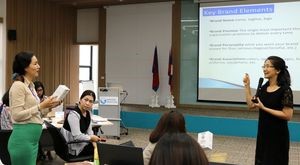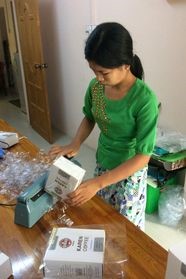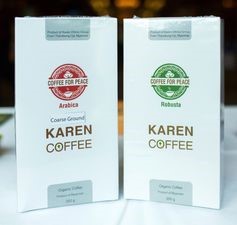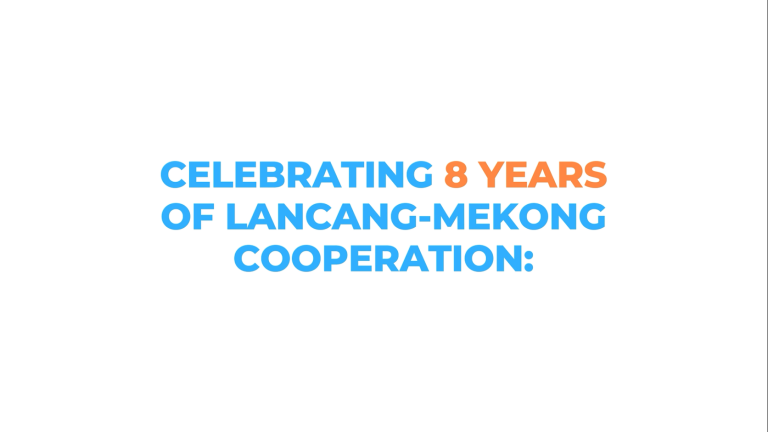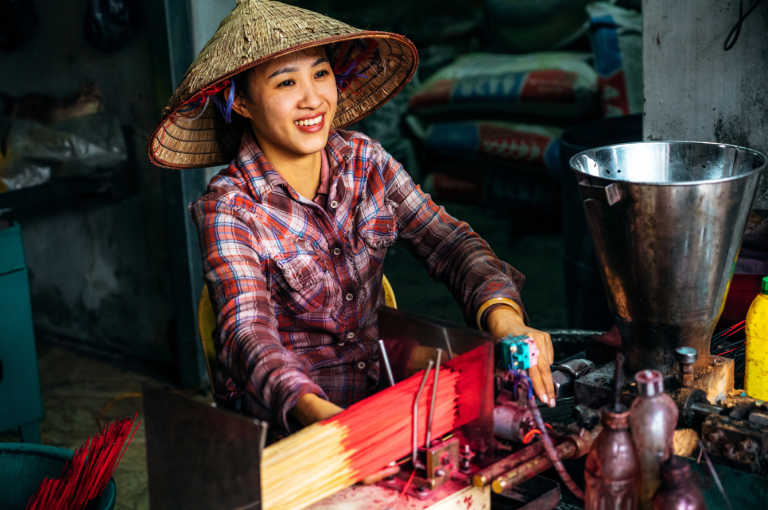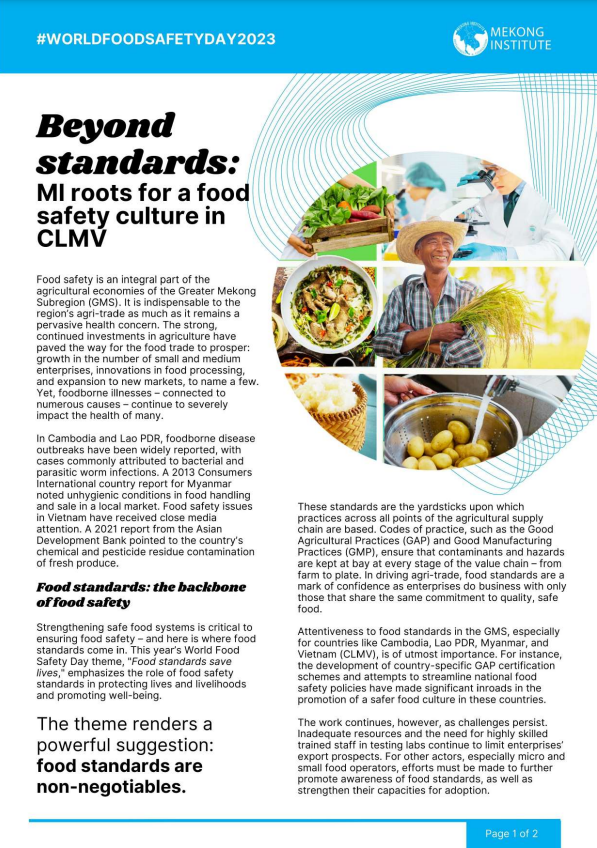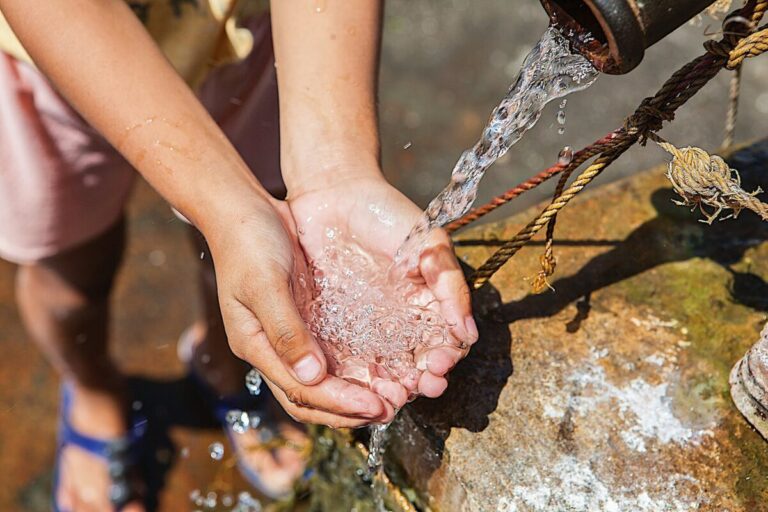It all made sense for Khin Ohmmar Moe, Managing Director of Yangon-based Sabanan Company, Ltd., to connect the dots backwards. What was originally intended as a local trading and women’s garment business would be transformed into a coffee-producing social enterprise. To do well and to do good, Moe established Karen Coffee in early 2017. She was driven by the aspiration of succeeding at one’s business paralleled with the goal of empowering women and ethnic groups in Karen State and eventually, contribute to her country’s socio-economic development.
Moe’s well-intentioned ambitions were not without doubts however. “There is external pressure, not to mention that I am also losing money along the way,” Moe says. “But if I stop doing business, not only will it affect my personal income but on a larger scale, it will also affect the ethnic communities whom I am working with.”
But if there’s one thing that Moe has learned from her experience, it is to keep educating yourself. The success that Karen Coffee has achieved has relied heavily on the owner’s commitment to continuous learning.
Seizing every opportunity, Moe participated in the project, “Making Trade Work for Small Producers in Southeast Asia’s Least Developed Countries,” a collaboration between Mekong Institute (MI) and the International Development Research Centre (IDRC) to develop the entrepreneurial qualities of women entrepreneurs and enable them to expand their business to regional and global markets. The project introduced Moe to export market strategies and market research tools, building her knowledge base as an entrepreneur and also providing her with a heightened sense of confidence and empowerment. Moe asserts,
She also learned the importance of providing a platform to connect to people and prospective buyers through the use of social media. By tapping on Facebook and LinkedIn for brand promotion, Karen Coffee recently received an offer to supply coffee beans to a buyer from the Netherlands.
The project also provided an avenue for women-led SMEs to promote their brands, and Moe took the opportunity to join the MI-organized business matching events including the Investor Forum in Bangkok and the Mekong-ROK Business Forum in Lao. These resulted into promising connections with agencies like the Hong Kong Trade Development Council (HKTDC) through Mr. Sunny Chau, HKTDC’s Myanmar focal point. The exposure and experience from these trade events equipped Moe with the knowledge and confidence to join other networking opportunities such as the Myanmar Famous Brand Expo 2017 and several other trade expos in Hong Kong, Korea, and Southeast Asia. All these networking efforts have slowly begun to pay off, beginning with a deal with City Mart, a local grocery chain in Myanmar, to distribute Karen Coffee in their stores.
Benefits from participating in the project have also transcended to peer learning and long-term connections. For instance, a fellow participant of the MI-IDRC Project shared with Moe her experiences on exporting products as well as information on logistics suppliers for importing cheaper packaging material from China. In another instance, Moe was able to send the women and ethnic groups working for Karen Coffee to a post-harvest processing training organized by Su Su Aung, another participant of the IDRC Project who is also running a coffee-exporting business. Moe emphasized the effectiveness of peer learning with the practical knowledge that she acquired from Su Su about coffee export and production.
Anchored by a commitment to social change, Moe has applied her knowledge and experiences from these encounters to create ripples of wider impact. In a coffee consultation meeting last November, Moe shared her experiences as a coffee producer, helping to increase the awareness of the Myanmar government and coffee associations on the coffee sector in Kayin and Chin States. That meeting has resulted into Kayin coffee farmers being granted with an additional 3,000 acres of land.
Through the MI-IDRC Project, Moe has gained a concrete understanding of the importance of branding and market positioning as prerequisites to business and market expansion. According to Moe, she has channeled efforts on strengthening what would distinguish her brand from the rest of its competitors— a socially responsible brand.
Karen Coffee is farmed, harvested, and processed by ethnic women groups in Than Daung Gyi. Not only does the brand support the livelihood of ethnic groups, more importantly, it focuses on the economic empowerment of Karen women. It is worth noting that 30 percent of the net profit from total sales of Karen Coffee is generously shared to women’s groups in the area to facilitate projects on women empowerment.
Karen Coffee’s tagline – Coffee for Peace – signifies the brand’s commitment to facilitating peace process and rehabilitation in the area by providing communities with livelihood and stability. That being said, Moe believes that the brand value and story behind Karen Coffee offers an added value to the product coupled with a significant potential for export.
In line with the project’s end goal of expansion to regional and global markets, Moe has learned how product standards beget export quality. By re-assessing its product, the company has upgraded its inner coffee packaging from plastic zip bags to aluminum bags since November 2017. Sealing machines were purchased to ensure quality packaging for safer and extended shelf life. Moreover, investing on coffee roasting machines served a double purpose of reducing production costs while monitoring and ensuring better quality of coffee beans.
Aimed at applying knowledge into practical use, the project introduced export-plan making from which Moe has drawn her export market strategies. According to her, the project provided a clearer organization and direction for her business: “Now I know where I want to go. I want to expand my market reach, and at the same time, increase my contribution to social impact.” As initial steps, Karen Coffee is planning a trial export of five metric tons (MT) each of Arabica and Robusta green coffee beans beginning this year. Target markets for export include Korea, Australia, USA, and the EU, primarily because of the growing trend and demand for organic and socially responsible brands. Plans of upgrading the production and storage facilities are also being considered in compliance with FDA regulations, ISO and HACCP certifications, and other international standards; while sound market entry strategies as well as financial analysis and planning are underway.
